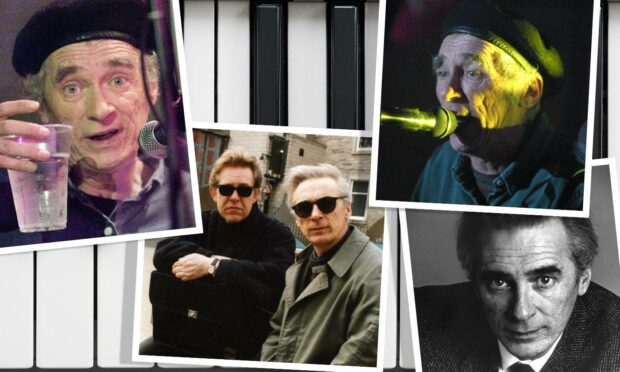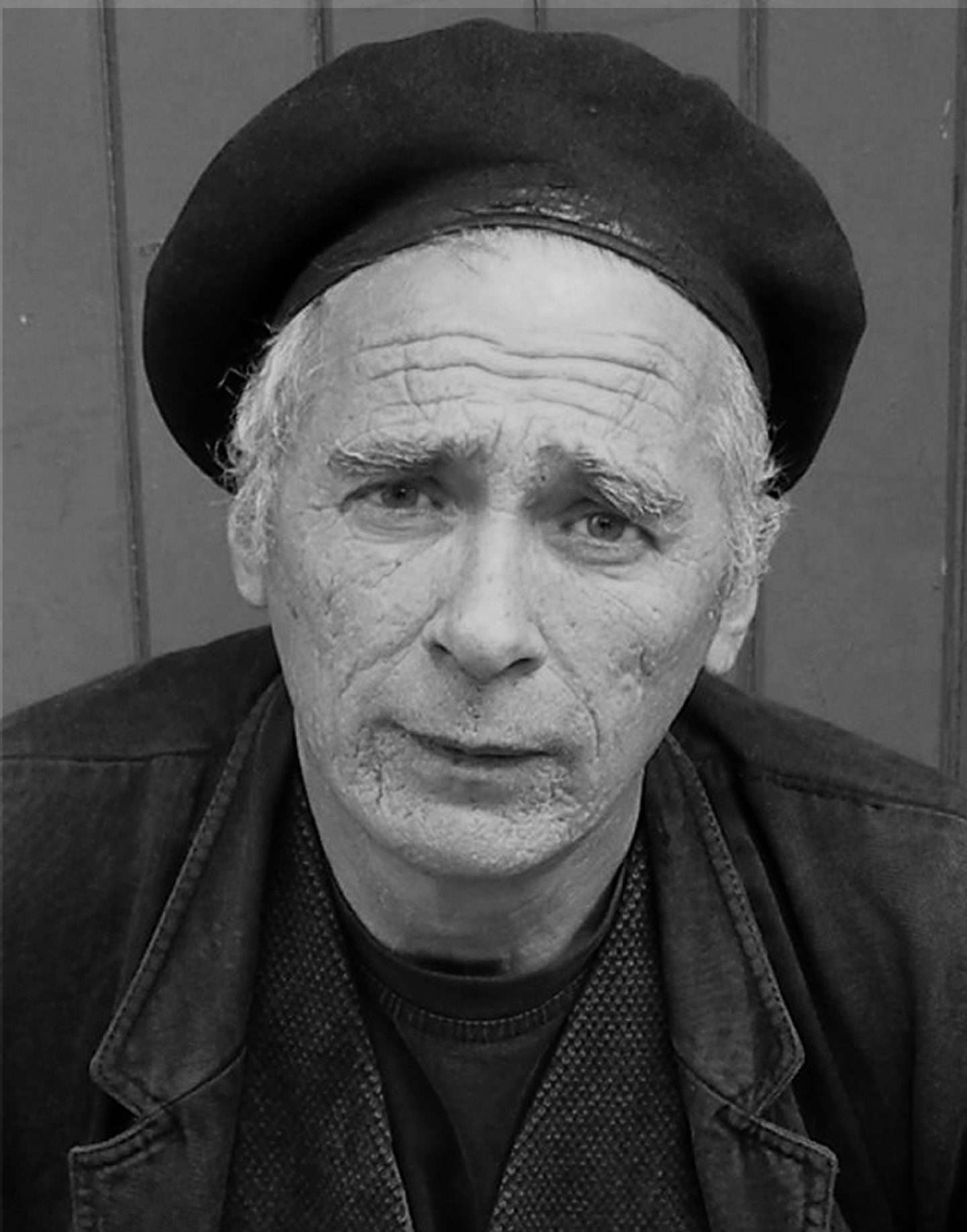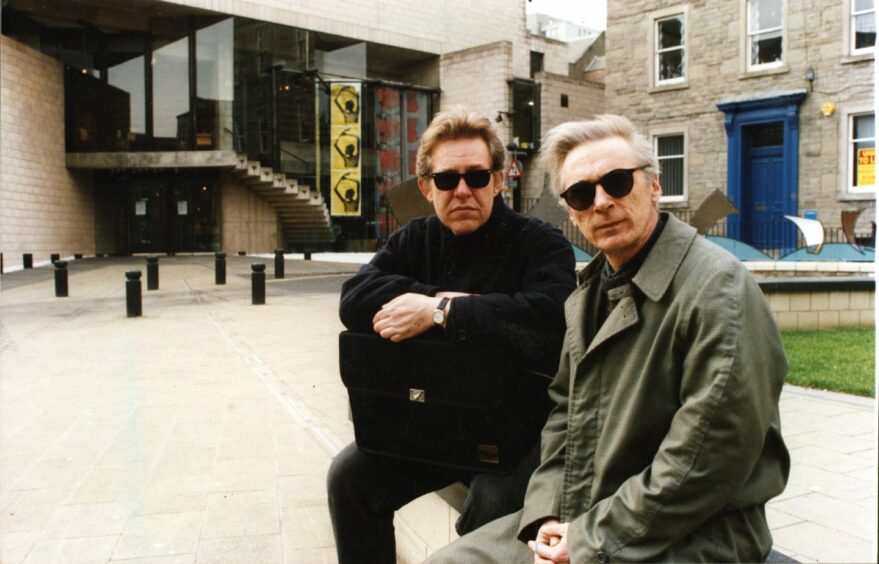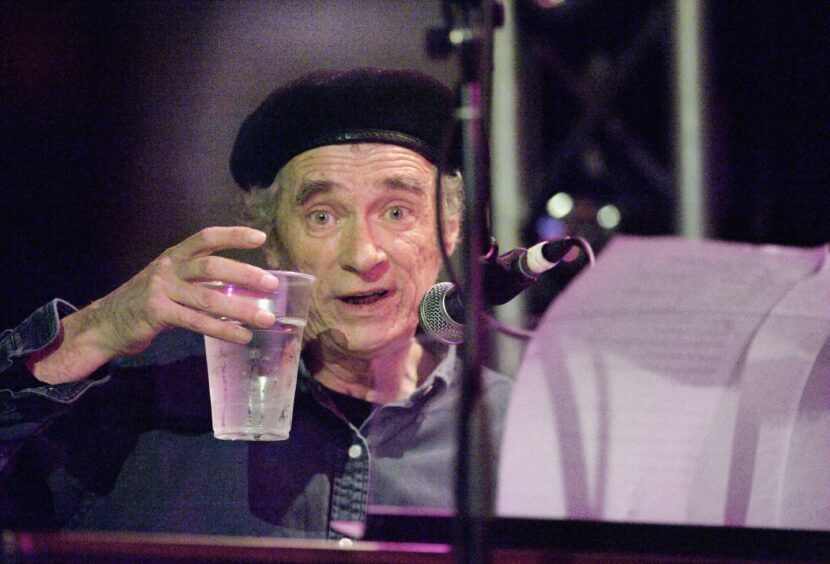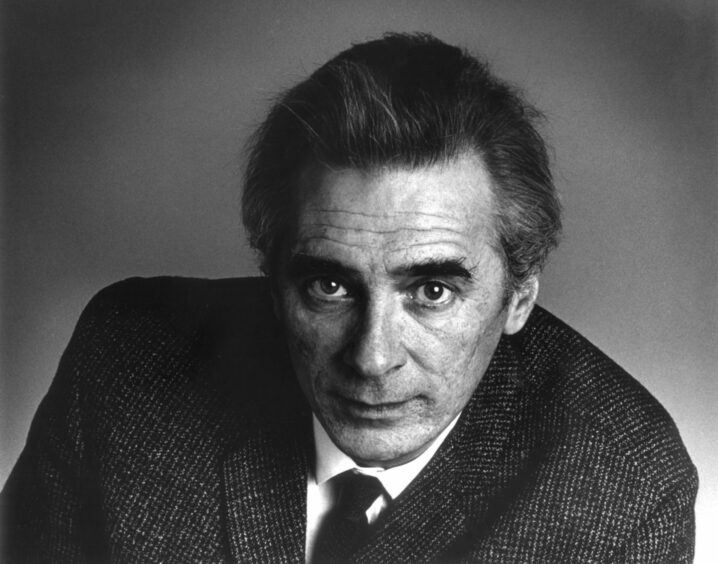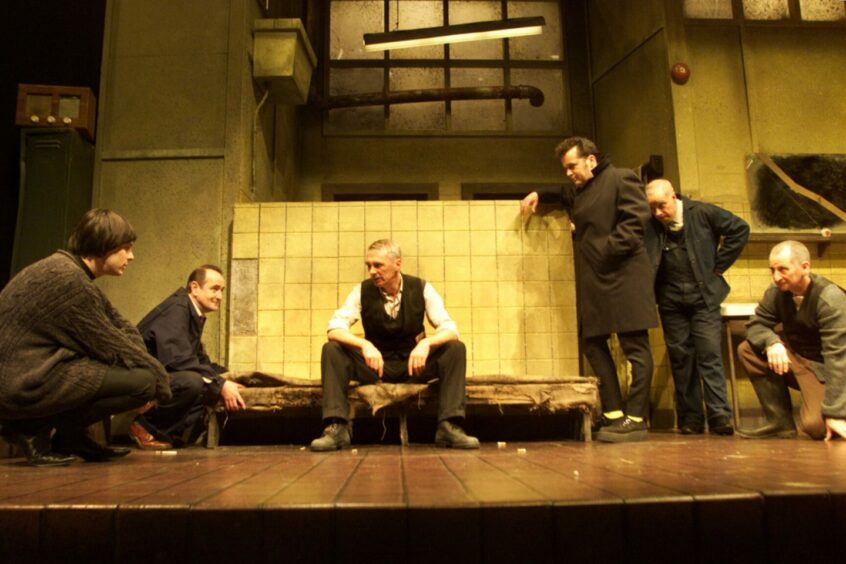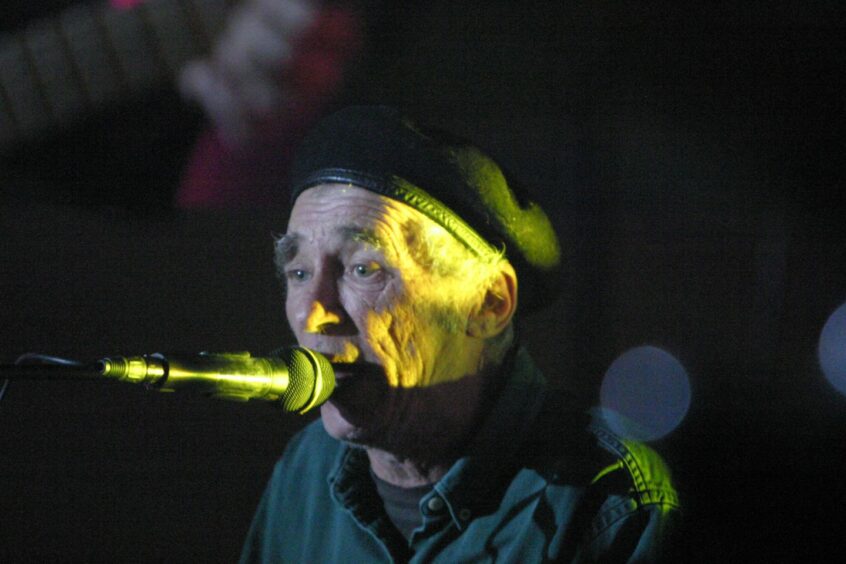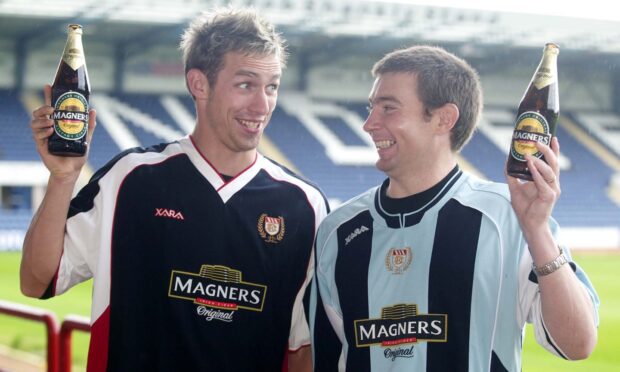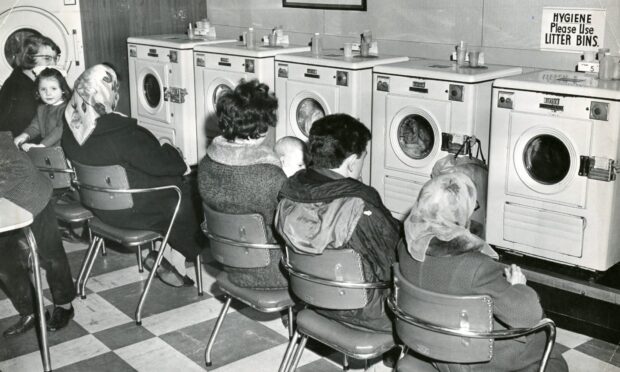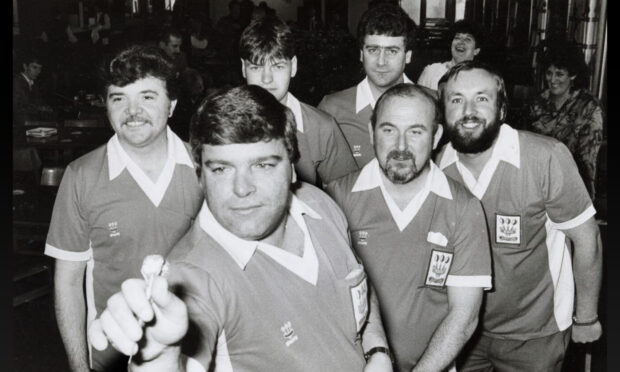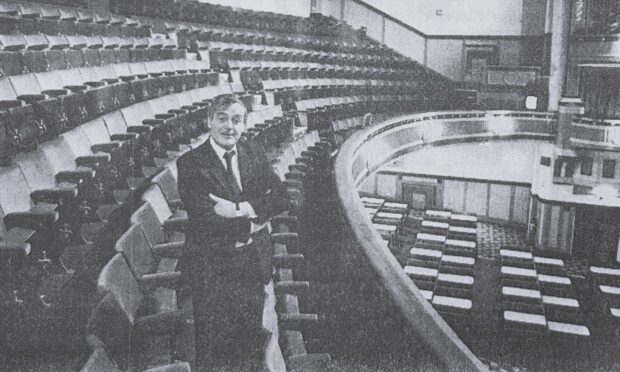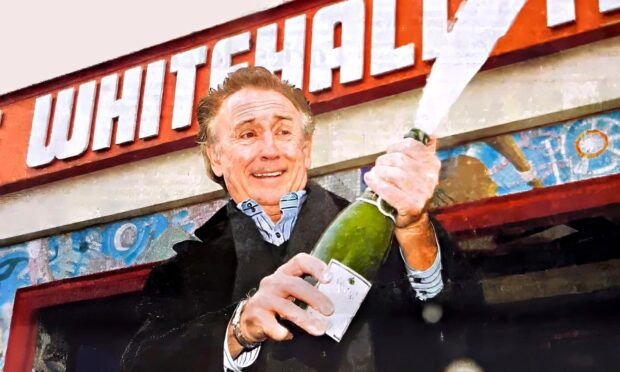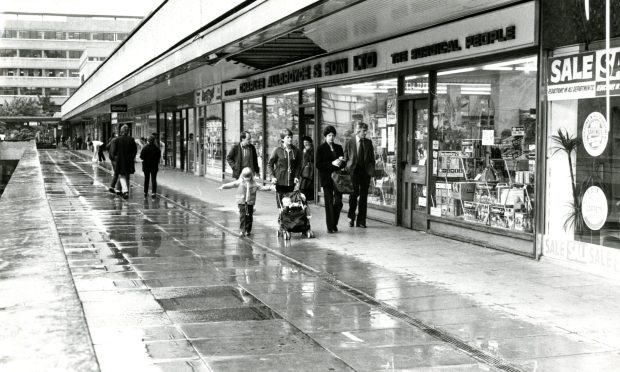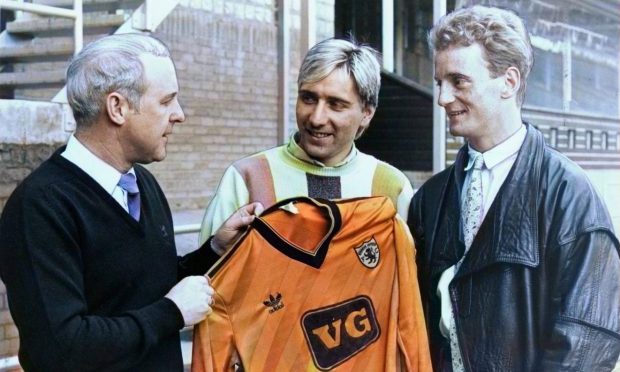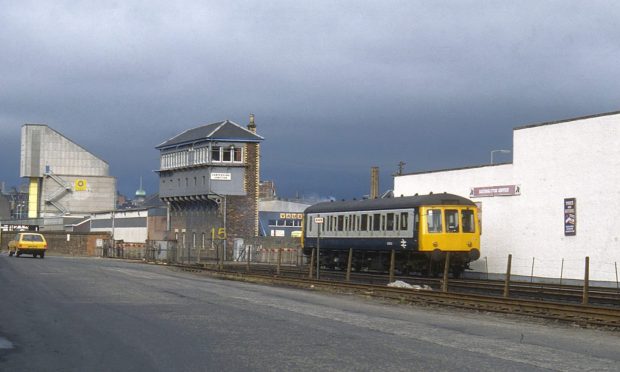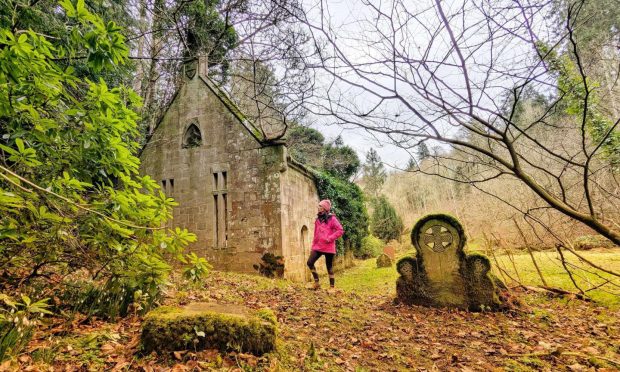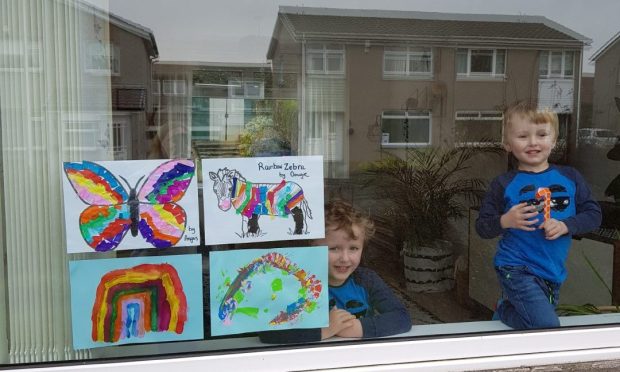Dundee musician Michael Marra’s live performances were legendary.
So it may be a surprise to learn that he was terrified of taking to the stage.
In Marra’s case, the joy came from the daily work of sitting down and writing songs, a task to which he brought the expertise of a master craftsman.
He made the admission of his stage fright in a forgotten interview from 2004 that has been published to mark what would have been his 70th birthday.
The poet in blue suede shoes
Marra rose from humble beginnings in Lochee to become a national music hero and his first public performance was at an NCR Christmas party in the 1950s.
From there he went on to tour the world performing his music.
The best label attached to Marra was that of the poet in blue suede shoes.
But he said he preferred a more simple summary in the 2004 interview.
“I have been called a folk singer, but then the folk purists stand up and cry out that I’m not a folk music artiste,” he said.
“I don’t mind that, because I don’t consider myself a folk musician, unless you also call Charlie Parker that. To me, that is all meaningless.
“Principally I am a songwriter.
“That is the number one thing with me. Everything else is by the way.”
‘Performance is a nightmare for me’
Marra would write every day in the studio at his home on a variety of projects which covered theatre scores, soundtracks, radio work and his own songs.
He was somewhat tortured by the next part of what may be considered the normal process – namely going out and playing these songs.
“I work in my studio every day, either starting something new or continuing with work I’ve already begun,” he said.
“But I am in the studio every day. But any day where I have a gig is different. There is then an entire neurotic process that begins at around eight in the morning and goes through to around four hours after the gig is finished.
“Performance is a nightmare for me. I approach it with great fear and trepidation.
“Actually, stage fright would be an appropriate term.
“It has always been the case for me. I think it is partly due to a natural shyness, but whatever it is, I approach it with a great deal of apprehension.”
He admired those who could walk on stage and step straight into performance mode, such as his frequent working partner, Saint Andrew.
“He just walks on there without doing too much, and audiences laugh,” he said.
“It amazes me. But what he does works in a very different way from how I work.
“I couldn’t just take myself on stage. Like many performers, I have to become something or someone else.
“If I was to take this neurotic man out on stage it would be unfair to everyone involved. So it becomes a performance tightrope.”
Marra sang with famous names throughout his career and supported others on stage, such as Van Morrison, Barbara Dickson and Deacon Blue.
How did his stage fright rear its head?
“There was a lot of singing in our family,” he replied.
“I think that is one of the first ordeals we had in life, having to get up and sing in front of the whole family.”
Hen’s Teeth
Stage fright can put careers on hold but thankfully Marra would still take to the stage often enough to perform the music which was often inspired by his home city.
He had a sly wit and humour and always seemed to have the right touch when singing about his own folk, the people of Scotland in general, and Dundee in particular.
By 1971 he had formed his first band, Hen’s Teeth, and after that he was in the well-remembered Dundee band Skeets Boliver.
Music was very important in our home, even when I was a young boy.”
Michael Marra, speaking in 2004
He and brother Christopher wrote the band’s first single, listed as Streethouse Door, although they never sang the “street” bit.
They gave it their best shot, but despite critical acclaim the band was never a huge success and had folded by the end of the decade.
Michael came to wider notice in 1980 when he released his album The Midas Touch.
It met with a very favourable response.
He was down in London by this time but found it wasn’t to his liking and was soon back up in his homeland and released Gaels Blue in 1985.
“I was always awkward with the music business in London,” he said.
“That was never going to work for me. At the same time, I did work with a lot of great people down there and met some great producers.
“I think I did quite a lot of good stuff, but the commercial thing was never really a consideration for me, and that is often what people in that business are looking for.
“I just haven’t ever been conscious of that side of things. What happens is, I get interested, or rather obsessed, with something at a precise time and then I just have to pursue it. Whether it is commercial or not doesn’t come into it.”
Marra also worked in radio, TV and theatre and wrote his own operetta — If The Moon Can Be Believed — which was performed at Dundee Rep to sell-out audiences.
Marra broke it down further in the 2004 interview.
“I have done acting, and it has tended to be working alongside some very talented people,” he said.
“What I think I’ve learned from that is how to do it without spoiling anything. If you are working with good actors it is a serious business, and your duty is clear in that you have to pull yourself up to that.
“Theatre performance is completely different to playing music live. There are some parallels in that you have to make something work and you have to make it believable, but otherwise there are considerable differences.”
It was music where his true love always lay.
“Music was very important in our home, even when I was a young boy,” he said.
“We all loved it from as far back as I can remember.
“I decided very early on what it was I wanted to do. Songwriting was simply something I learned how to do, how you move from just playing to songs to actually writing them.”
Time to get exploring! @OpenCloseDundee has unveiled this stunning mural of Scottish singer-songwriter Michael Marra.#urbanart#PutDundeeonYourMap#CityMurals#Murals#OpenCloseDundee pic.twitter.com/tsOB7JxsPm
— Dundee | One City, Many Discoveries (@dundeecity) July 7, 2021
“Normally I have to have something worth celebrating when I am writing a song.
“I get quite a lot of that from football or from musicians. The main interest for me lies in finding a way into something, and then finding a way through and how you relate the information and make something dynamic from it.
“My stuff might sound miserable but if you sit and read the words, it is often celebratory and hopefully funny.
“Making people laugh, that’s just a way of stopping them booing you!”
The laughter most often won when Michael Marra was playing, which is what helped make that fear and trepidation worth battling.
The singer-songwriter died in October 2012, after suffering from throat cancer.
His songs are his legacy.
He will always be the Bard of Dundee.
More like this:
Billy Mackenzie: The Associates singer’s forgotten duet with Annie Lennox
Sex Pistols, Dire Straits and Motorhead performed at the Bowling Alley in Dundee
‘Truly great’: Robbie McIntosh was the Dundee drummer who helped Average White Band conquer US
